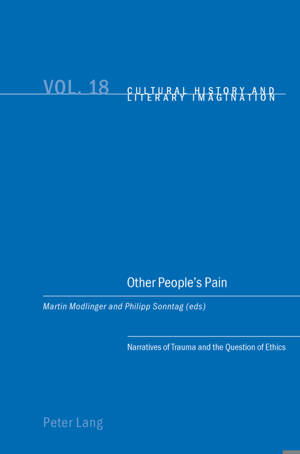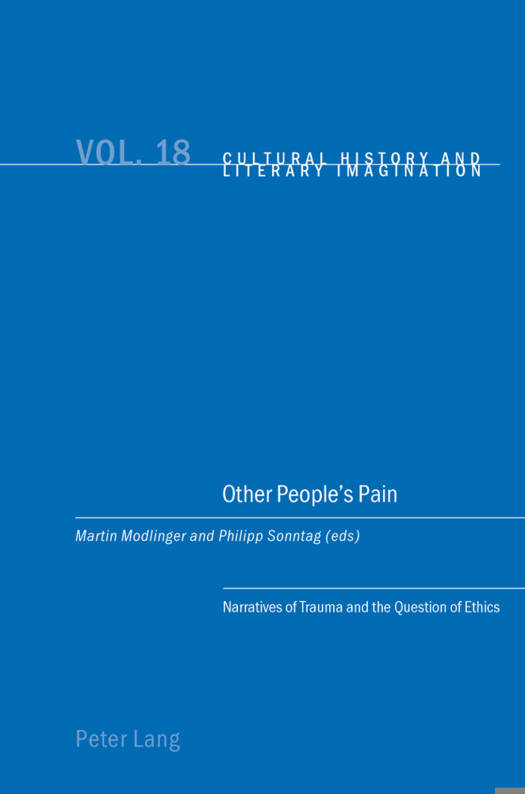
Door een staking bij bpost kan je online bestelling op dit moment iets langer onderweg zijn dan voorzien. Dringend iets nodig? Onze winkels ontvangen jou met open armen!
- Afhalen na 1 uur in een winkel met voorraad
- Gratis thuislevering in België vanaf € 30
- Ruim aanbod met 7 miljoen producten
Door een staking bij bpost kan je online bestelling op dit moment iets langer onderweg zijn dan voorzien. Dringend iets nodig? Onze winkels ontvangen jou met open armen!
- Afhalen na 1 uur in een winkel met voorraad
- Gratis thuislevering in België vanaf € 30
- Ruim aanbod met 7 miljoen producten
Zoeken
Other People's Pain
Narratives of Trauma and the Question of Ethics
€ 62,45
+ 124 punten
Omschrijving
How do we approach other people's pain? This question is of crucial importance to the humanities, particularly literary and cultural studies, whenever they address narratives of terror and genocide, injustice and oppression, violence and trauma. Talking about other people's pain inevitably draws attention to the ethical dimension involved in acknowledging stories and histories of violence while avoiding an appropriation - by the reading public, literary critics or cultural historians alike - of the traumatic experiences themselves. The question of how to do justice to the other's pain calls for an academic response that reflects as much on its own status as ethical agent as on literary expression and philosophical accounts or theoretical descriptions. This volume therefore explores the theoretical framework of trauma studies and its place within academic discourse and society, and examines from a multidisciplinary perspective the possibilities and limitations of trauma as an analytical category. A variety of case studies on individual and collective traumatic experiences as portrayed in literature and art highlight the ethical implications involved in the production, reception and analysis of other people's pain.
Specificaties
Betrokkenen
- Uitgeverij:
Inhoud
- Aantal bladzijden:
- 248
- Taal:
- Engels
- Reeks:
- Reeksnummer:
- nr. 18
Eigenschappen
- Productcode (EAN):
- 9783034302609
- Verschijningsdatum:
- 12/05/2011
- Uitvoering:
- Paperback
- Formaat:
- Trade paperback (VS)
- Afmetingen:
- 147 mm x 221 mm
- Gewicht:
- 258 g

Alleen bij Standaard Boekhandel
+ 124 punten op je klantenkaart van Standaard Boekhandel
Beoordelingen
We publiceren alleen reviews die voldoen aan de voorwaarden voor reviews. Bekijk onze voorwaarden voor reviews.










